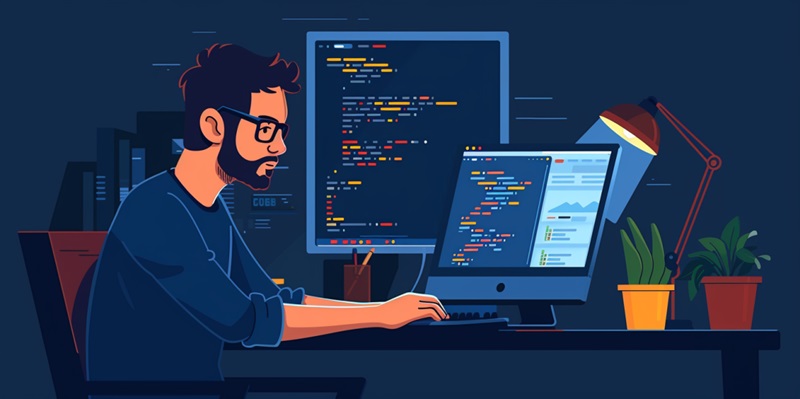The dynamic field of DevSecOps is currently undergoing a transformation driven by the integration of artificial intelligence (AI) and platform engineering. The ever-accelerating pace of application development, coupled with increasing security concerns, necessitates robust governance and effective management of expanding code bases. This article delves into how AI-driven tools are reshaping DevSecOps workflows, emphasizing the significance of these developments in enhancing both security and operational efficiency.
AI Tools Revolutionizing DevSecOps
Automated Application Security and Integration
Artificial intelligence is making a significant impact on DevSecOps by automating processes that were once manual, labor-intensive, and prone to human error. This trend is evident in Digital.ai’s recent Erawan release, which introduces new capabilities for automating application security. By seamlessly integrating with the open-source Backstage platform and Microsoft Azure, along with AI tools, Digital.ai aims to manage burgeoning code bases more efficiently. CEO Derek Holt has highlighted the necessity for such platforms, noting that they foster governance and reliability in a landscape increasingly reliant on generative AI tools. These tools can analyze massive code bases faster than any human could, identifying potential vulnerabilities and ensuring compliance with security protocols.
The automation of security not only speeds up the development process but also reduces the risk of introducing new vulnerabilities. As organizations adopt AI-driven DevSecOps tools, they can detect and remediate security issues earlier in the development lifecycle, which is crucial for maintaining the integrity of their applications. The ability to integrate these tools into existing platforms like Backstage and Azure further enhances their utility, allowing for a more cohesive and streamlined development process. This integration is essential in today’s hybrid application development environments, where different teams may be using various tools and platforms. By centralizing these processes, companies can ensure that all teams are on the same page regarding security standards and protocols.
Synthesizing Software Engineering Intelligence
One of the core strengths of AI in DevSecOps is its ability to synthesize software engineering intelligence from various data sources. Holt argues that normalized data from diverse development environments significantly enhances an organization’s capacity to manage DevSecOps workflows at scale. This is where platform engineering becomes crucial, offering a methodology for integrating disparate data sources into a unified framework. The normalization of data allows for more accurate analytics and better decision-making, ultimately leading to more secure and efficient code.
The comprehensive analysis provided by AI tools can uncover patterns and insights that would be difficult, if not impossible, to detect manually. For instance, AI can track code changes across multiple repositories, identify recurring issues, and suggest best practices for future development. This level of insight is invaluable for maintaining high standards of security and efficiency in DevSecOps processes. Moreover, with the ability to process and analyze data at scale, organizations can manage multiple code pipelines simultaneously, ensuring that security measures are consistently applied across all development projects.
Challenges and Best Practices
Reluctance to Switch Platforms
Despite the evident advantages of integrating AI into DevSecOps, there are notable challenges that organizations must overcome. One such challenge is the reluctance to switch from established DevOps platforms. Many organizations have invested significant time and resources into customizing their existing tools and workflows, making a transition to a new platform a daunting prospect. This hesitation is compounded by the rapid influx of generative AI tools, which, while promising, bring their own set of risks and uncertainties.
The variability in the quality and security of AI-generated code is a significant concern. Since generative AI tools are trained on diverse data sets, the resulting code can vary widely in terms of reliability and security. DevSecOps teams must rigorously validate all code, whether human- or AI-generated, to ensure it meets the organization’s standards. This validation process can be resource-intensive and time-consuming, potentially offsetting some of the gains achieved through automation. However, the long-term benefits of integrating AI into DevSecOps—such as improved security, faster development cycles, and better compliance—make it a worthwhile endeavor.
Government Accountability and Evolving Best Practices
Another critical factor driving the need for advanced DevSecOps practices is the increasing accountability imposed by governments worldwide on organizations for application security. Regulatory bodies are mandating stricter security measures and holding companies accountable for any breaches or vulnerabilities in their applications. As a result, best DevSecOps practices are no longer optional but imperative for organizations, especially those expanding their development capabilities through AI.
To address these evolving requirements, DevSecOps practices must adapt to manage the parallel processing of multiple code pipelines efficiently. This includes not only implementing robust security measures but also ensuring that these measures do not impede the rapid deployment of new applications. One approach is to adopt a continuous validation process, where code is checked for security issues at every stage of development rather than waiting until the end. This proactive stance can help catch vulnerabilities earlier and reduce the overall risk.
Integrated Platforms for Future DevSecOps
The dynamic field of DevSecOps is currently undergoing a significant transformation, primarily fueled by the integration of artificial intelligence (AI) and platform engineering. In today’s fast-paced world of application development, the need for rapid innovation is coupled with growing security concerns. This challenging environment calls for robust governance and effective management of increasingly complex and expanding code bases.
AI-driven tools are at the forefront of this revolution, offering unprecedented capabilities that reshape DevSecOps workflows. These tools bring automation and intelligence to various stages of the development lifecycle, from coding to deployment and monitoring. By incorporating AI, organizations can identify and mitigate security vulnerabilities more swiftly and accurately, ensuring that security is embedded seamlessly into the development process.
This development not only enhances security measures but also significantly boosts operational efficiency, enabling teams to deliver high-quality applications faster. The introduction of AI in DevSecOps signals a new era where security and efficiency go hand in hand, ultimately leading to more resilient and reliable software systems.

